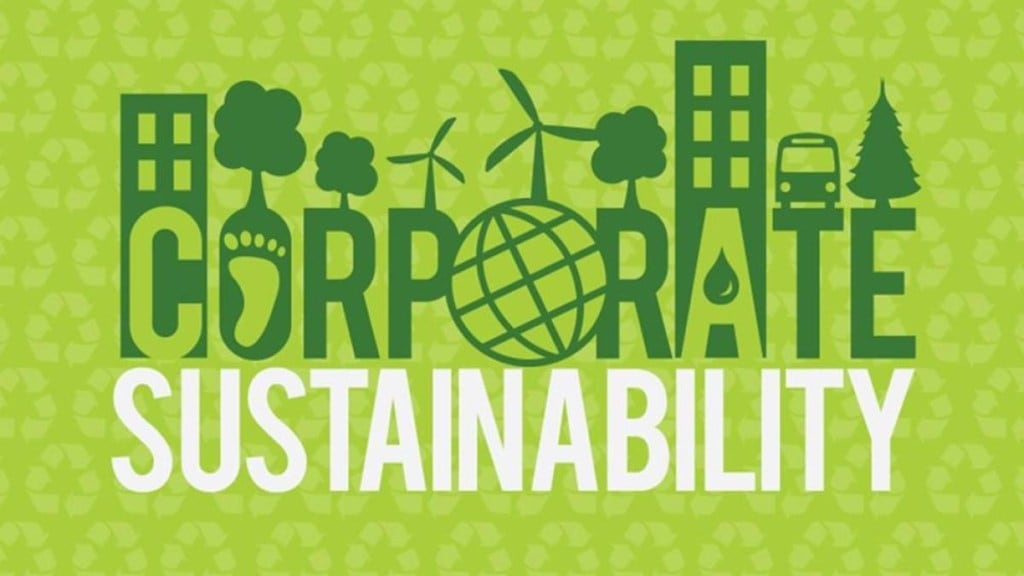– By Namrata Rana and Mustafa Surka
Over the years, there has been an increase in consumer and regulatory pressure for organisations to become more sustainable. In response to this pressure, brands have made misleading, or unsubstantiated claims to be green, typically by labelling products as ‘sustainable’. This phenomenon of using dishonest practices to give a false image of sustainability is known as greenwashing. It can undermine sustainability efforts, impact the ability to make relevant buying decisions, and deceive consumers.
With increase in corporate ESG initiatives and reporting, comes increased expectations and pressures as stakeholders elevate the importance of ESG on their agendas. Boards and executives are closely scrutinising their organisation’s ethics and compliance programs for ESG integrity, and to protect stakeholder trust.
Consequences of greenwashing
With ESG investing gaining prominence, investors rely heavily on accurate ESG data to allocate capital to sustainable and ethical ventures. Greenwashing distorts this data, causing misalignment of investment portfolios with sustainability goals. Worse, it exposes investors to reputational and financial risks when false claims are uncovered, leading to market instability and decreased confidence in ESG investing as a whole. Similarly for consumers, greenwashing distorts purchasing decisions. Many consumers actively seek environmentally responsible products, often willing to pay a premium for sustainable options. When companies engage in greenwashing, they exploit this trust, leading consumers to unknowingly support unsustainable practices. This not only misallocates consumer spending but also hinders the growth of genuinely sustainable businesses.
Breaches of trust can lead to fines, penalties, reputational damage, loss of investor confidence, litigation, financial damages, and ultimately loss of the social license to operate.
Key drivers of greenwashing
Globally, green washing has become a prominent issue among organisations across sectors. The key drivers of greenwashing are listed below:
1) Consumer demand for greener products: There has been an increase in consumer demand for eco-friendly products in recent years, with nearly 74 per cent of consumers in India willing to pay a premium for sustainable products. Health, safety, and environmental protection have become a growing priority and consumers prefer to purchase and use products of ethical organisations.
2) Lack of standardisation: With a lack of universally accepted standards for environmental claims and insufficient regulatory oversight, there is a possibility for organisations to make misleading green claims without having to deal with any consequences for the same.
3) Competitive pressure: While the market is highly saturated with many products and minor differentiation between them, organisations are vying for a slice of the market pie, creating conditions where organisations compete to make exaggerated claims about ‘green’ products.
Role of Technology and Data in Combating Greenwashing
Technology and data analytics are pivotal in addressing the challenges posed by greenwashing.
1. Blockchain for Transparency: Verification of sustainability claims data for both consumers and investors to claim independently can be achieved through blockchain technology, reducing the scope for false narratives.
2. IoT and Real-Time Monitoring: To track resource emissions and usage, Internet of Things (IoT) devices can track the right environmental data in real-time which when linked to sustainability reports, offers evidence of environmental claims that can be verified at any given time.
3. Artificial Intelligence (AI) and Machine Learning (ML): The right AI tool can be used to analyse vast volumes of ESG data, identifying inconsistencies or patterns suggestive of greenwashing and also be used to flag potential discrepancies for further scrutiny.
4. ESG Data Platforms: Centralised ESG platforms facilitate better decision-making by providing investors with robust, real-time insights into an organisation’s performance. By aggregating data from multiple sources, companies can be rest assured on reporting accurate, transparent and comparable data.
5. Third-Party Certifications: ESG strategy rests on the right data and technology used to drive the data. Using a technology-driven certification process that is supported by data, can provide independent validation of sustainability claims.
Key recommendations for organisations
Litigation is expensive, time-consuming, and resource intensive. Businesses need to prepare for a new landscape, where transparent and accurate ESG data will be required. This is not only beneficial to internal stakeholders but is vital to make information accessible to consumers and investors, and to comply with multiple local and global regulations, avoiding significant fines and potential reputational damage. Requirements such as these will impact marketing strategies that will demand accurate and nuanced claims, ultimately enhancing brand value and consumer trust.
What’s next?
Greenwashing is a serious problem with real-world consequences for businesses and consumers alike. It is growing to be a significant business topic and in developing the law on misleading commercial claims and practices. The increasing prevalence of greenwashing suggests that it is no longer just an unpleasant side effect of competition, but a very real issue with actual financial and non-financial consequences.
It is imperative for regulators to gear up in developing the right policies and frameworks to collaborate with organisations and take proactive measures to combat greenwashing. It is crucial for businesses to embed adequate assessments and strategies to ensure compliance with applicable regulations and prevent greenwashing. Data-driven validation with the right technology to ensure transparency can enhance an organisation’s financial and non-financial value and is a strategic advantage in building lasting relationships with stakeholders.
(Namrata Rana, Partner and National Head – ESG, KPMG in India; and Mustafa Surka, Partner, Risk Advisory – Consumer Markets and Retail Leader, KPMG in India.)
(Disclaimer: Views expressed are personal and do not reflect the official position or policy of Financial Express Online. Reproducing this content without permission is prohibited.)
